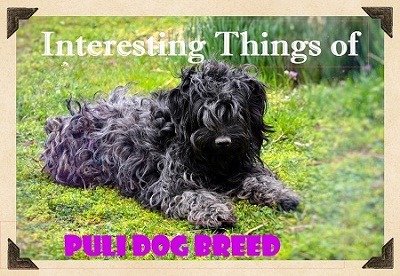The Puli Dog Breed is an ancient Hungarian herding dog variety. However, it is widely believed that their origins trace back to Asia, with Puli ancestors arriving in Hungary over 1000 years ago when the Magyars migrated from Central Asia. The Magyars lived as nomadic herders, and the Puli was used for herding and guarding livestock.
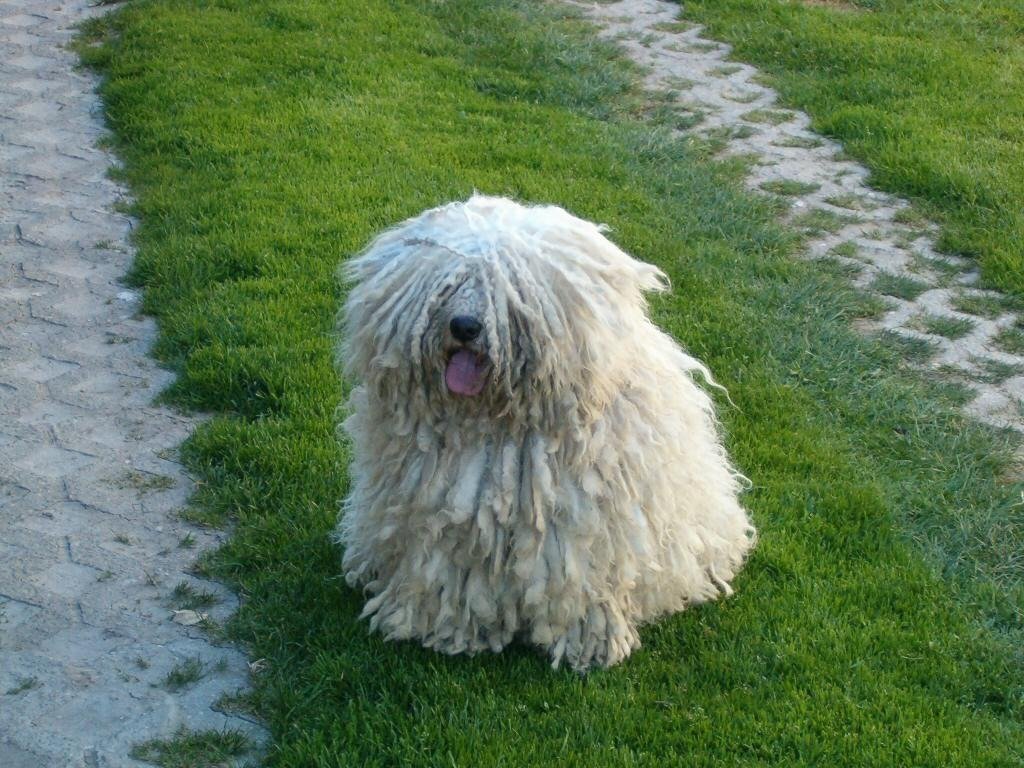
The pulik, which is the plural form of Puli Dog Breed, were known for being energetic and skilled sheepdogs. They often worked alongside larger Hungarian breeds, such as the Komondor or Kuvasz. Typically, the Komondor would guard the flock at night, while the Puli would herd and tend to the sheep during the day. When the Puli detected threats like wolves or bears, they would bark to alert the flock and notify the Komondor or Kuvasz, who would then confront the intruders. Interestingly, even a group of Pulik could fend off wolves on their own, thanks to their thick coats that protect them from bites.
Rare breed
Historically, the Puli was quite popular in Hungary. However, this changed around the 1800s as the demand for sheepdogs declined, leading to a decrease in their population. They nearly faced extinction in the early 20th century, but Dr. Emil Raitsits played a crucial role in their preservation. World War II was also devastating for the breed and for Hungary as a whole, yet the Puli managed to survive and became beloved family companions. While the Puli is not on the brink of extinction today, it is considered a rare breed, especially outside of Hungary.
Companions
The Puli makes for an exceptional companion. They are sensitive, highly intelligent, and have a fondness for children. They are also very protective of kids and the entire family. Although they possess herding instincts that may lead them to try to herd other animals, they can coexist with them, especially if raised together from puppyhood. Overall, they are a wonderfully loyal family pet.
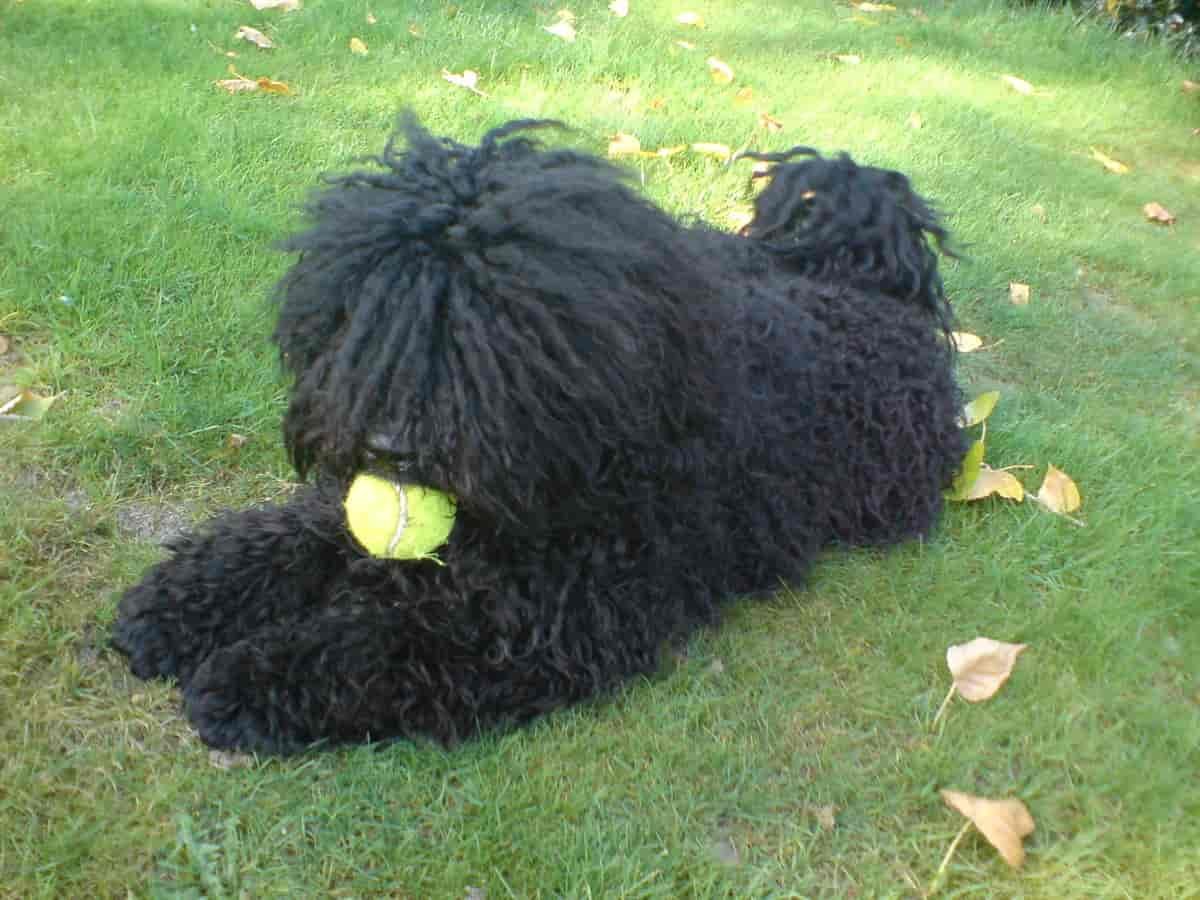
Coat
This breed is easily recognized by its unique long, thick coat that hangs in corded strands, a result of a controlled matting process. The cords are woolly and can vary in shape and thickness, appearing either flat or round. The most common color is solid black, but you can also find Pulis in white and various shades of gray. A fully corded and mature coat can weigh as much as seven pounds, or 3 kg.
Size
Due to its corded coat, the Puli appears larger than it actually is. The average height ranges from 16 to 17 inches, which is 40 to 44 cm, and the weight typically falls between 25 to 35 pounds, or 11 to 16 kg. Females tend to be slightly smaller than males.
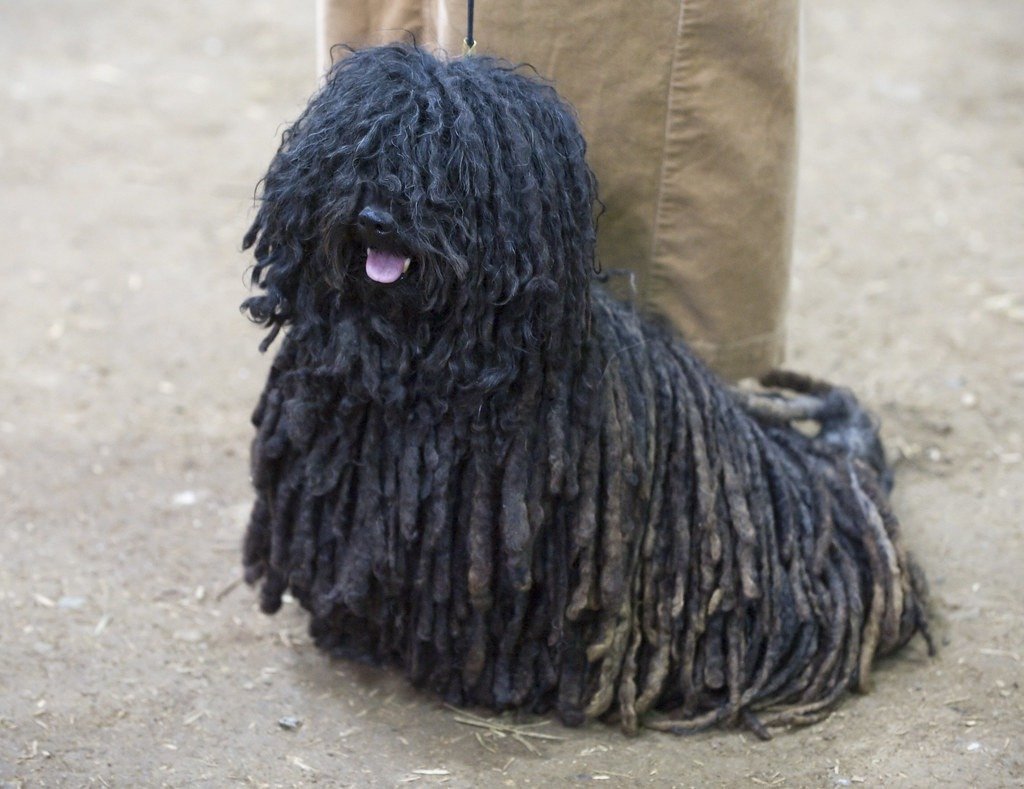
Training
The Puli is an exceptionally intelligent dog, which is essential for effectively herding on its own. However, training can be challenging because they are also independent, stubborn, and strong-willed. This is why patient and consistent training is necessary to develop a submissive Puli.
Exercise
This breed is very energetic and was historically used for long hours of work. Today, if you’re not using this breed for work, it’s important to provide them with daily exercise. They enjoy running, hiking, fieldwork, or engaging in interactive play. Without sufficient exercise, a Puli may become mischievous and develop undesirable behaviours, such as destruction. They excel in various dog sports like agility, rally, flyball, tracking, and, of course, herding activities.
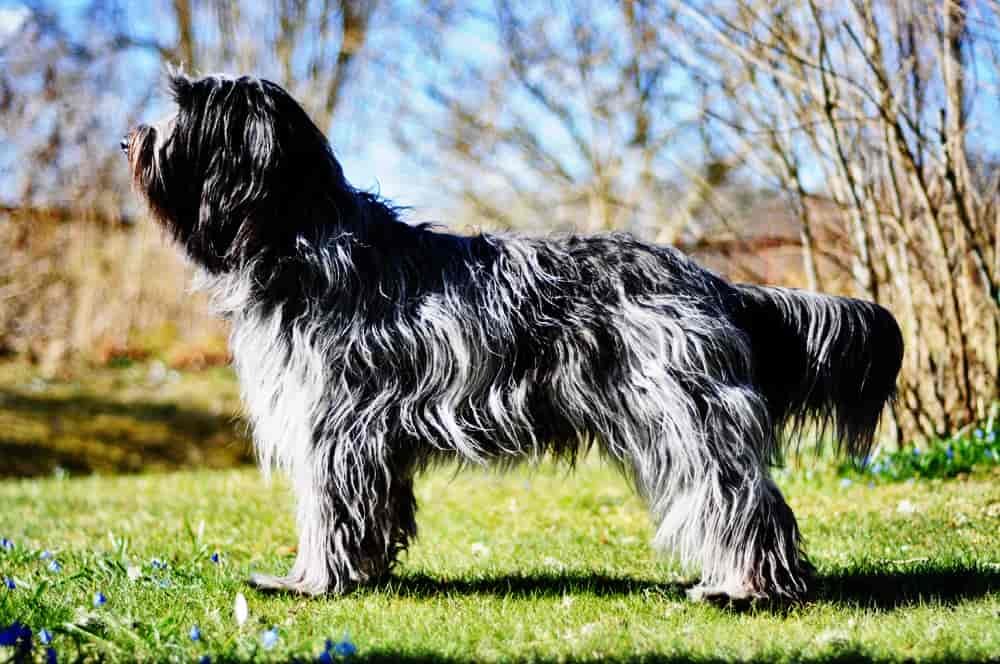
Long puppyhood
The Puli Dog Breed is known for maintaining a playful demeanour well into their older years. They remain lively and energetic dogs with a great sense of humour for a long time. While this is wonderful, it’s something you should be prepared for.
Puli Dog Breed Grooming
The Puli is a low-shedding breed, but that doesn’t mean grooming is straightforward. In fact, it’s quite the opposite. You need to take proper care of their corded coat. Unlike most other dog breeds, they don’t get brushed. Instead, you should first wet the coat with water, then use your hands to separate and twist the strands into cords. As with all dogs, you should regularly check their eyes, ears, and nails, trimming or cleaning them as needed.
